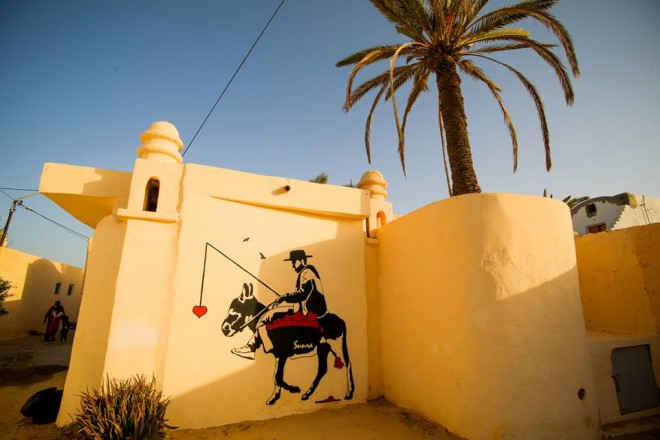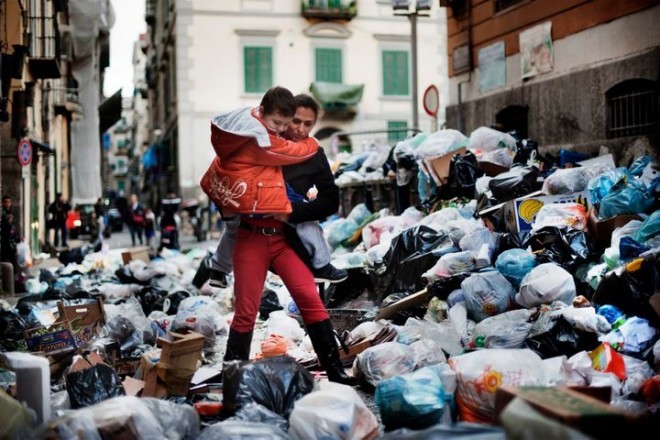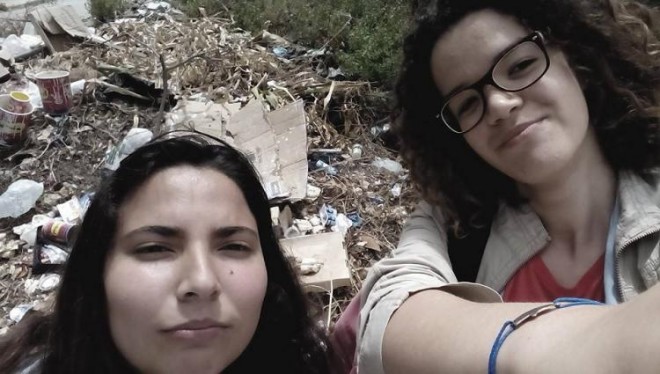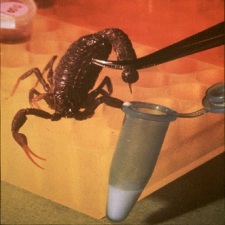Tunisians are famous the world over for trash selfies. Now simple calculations made by this Green Prophet shows that Tunisia, and many other countries in the MENA region, could spend at least three times as less than they do for collecting municipal solid waste by donkey.
Tunisia’s rubbish problem is an embarrassing affair for many nationals, in particular tourist guides, who reminisce of a cleaner Tunisia.
Thankfully today civil society is denouncing and government seems to have caught on by deploying a new “environmental municipal”. These are, ideologically speaking, very much needed steps in the right direction, yet there are larger, practical restraints.
RELATED: Tunisians dive into mysterious lake that appears overnight, despite radiation fears
For example fiscal restraints risk concentrating efforts in the areas only where rubbish is dangerously visible: tourist attractions and urban centers, leaving rural areas largely out of the cleaning equation.
Tunisia’s trash is a universal problem, that touches the most rural of areas and the most desolate of villages. Considering the geographic disarticulation of such municipalities, collecting trash is an expensive ordeal for the Tunisian government to deal with, yet cheap and eco-friendly ideas taken from positive experiences elsewhere (only 160 km away in fact) can be adopted to employ locals and improve waste management.
In 2007, the mayor of Castelbuono , a town in Sicily, was inspired to use donkeys as a vehicle to collect rubbish door to door. He found that this solution proved to be cheaper, more efficient and eco -friendly.
The so-called eco-donkeys costs on average 1269 USD plus 2540 USD per year to maintain and a donkey’s average working life is of 20 years. Tash collecting vehicles instead cost 38000 USD plus 10150 USD of maintenance per year and have a working life of only 5 years.
RELATED: How we are killing Tunisian townsfolk with our phosphate addiction
Also, donkeys can walk along the tiny, inaccessible, cobbled streets, they hardly make any noise and they drink water, not petrol. The only inconvenience is their poop on the streets.
Castelbuono has successfully deployed half a dozen of these donkeys and has been maintaining the streets of this 10,000 person town clean, while providing employment to six former farmers.
What if Tunisia’s rural donkeys also started to be deployed in villages to collect rubbish door to door? Would it be an efficient and cheap solution?
Green prophet does some approximate calculations ( we have purposefully used high estimates). Maintaining and finding donkeys in Tunisia is easier and cheaper than in other Mediterranean countries. Consider that in Tunisia a donkey costs on average 380 USD, while maintaining a donkey costs 260 USD per year.
Tunisia’s waste by the numbers:
Tunisia’s Population: 10.9 million (2014)
Number of people served /donkey (based on Castelbuono’s experience): 1,666 persons/donkey
Cost of one eco-donkey in Tunisia: 380 USD + 260 USD /year = 640 USD
Wage of eco-agents (based on Tunisia’s monthly minimum wage of 190 USD/month )= 2280 USD
Total number of donkeys needed in Tunisia = 10.9 million/1666= 6540 donkeys
Total cost of donkeys + eco-agents = 19.09 million USD (year 1), $16.61 million USD (year 2)
So to summarize, it would cost the Government (municipalities) approximately $19 million USD in the first year to collect and clean Tunisia up, without spending much on petrol, providing employment to 6,540 rural eco-agents and ensuring the durability of the project for at least 20 years.
How much does Tunisia currently spend on waste?
In 2009 for example, Tunisia produced 2.25 million tons of solid waste. The total approximate cost for collecting this, amounted to 69 million USD.
Over three years, the World Bank has lent Tunisia 50 million euros, The European Commission 41 million euros and the French Development Agency 15 million euros for waste management.
Simple calculations clearly show that donkeys can be a cheaper and more eco-friendly alternative to the systems currently in use.
Image of Donkey graffiti by Sunra / Tunisie taken by Aline Deschamps from Galerie Itinerrance Djerbahood







Comments are closed.